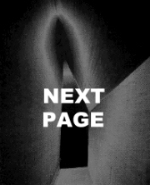CONTINUED
Project Looking Glass, the
sting investigation
which resulted in Robert Brase's arrest, was created by Post Office
Inspector
Ray Mack. Mack originally envisioned Looking Glass as an
intelligence-gathering
operation, with the focus to remain on apprehending distributors. There
were no plans to sell or distribute child pornography to anyone.
Administration officials in
Washington decided
to elevate Looking Glass to the major sting operation it became.
Calvin Comfort was a postal inspector whose job was to implement
Project
Looking Glass in the midwest region. Comfort identified possible
targets, wrote advertisements, analyzed responses to
dvertisements,
and frequently became a "pen pal" to targets who exhibited reluctance
to
order the pornographic materials. Writing under pseudonyms such
as
"Carl Long," Comfort employed "mirroring techniques" in which "Long"
expressed
a shared interest in whatever sexual inclinations his targets' letters
revealed. In these letters, Comfort/"Long" emphasized his
interest
in discreetness. Typical is the language in one of the three
letters
sent to a sting target: "I agree with you about privacy. I am
real
discrete [sic] but still our conservative society wants to pry into
private
lives."
There is no evidence to suggest
that Robert
Brase or most of the other targets of Project Looking Glass were child
molesters or had ever engaged in sexual activity with minors. In
fact, the vast majority of persons who exhibit an interest in child
pornography
pose no threat of committing criminal sexual activity with minors.
The stigma and
shame associated
with an interest in child pornography led planners of the sting to
"expect"
suicides, and, predictably, four happened. Gary Hester, like
Robert
Brase, shot himself just prior to arraignment. Dale Riva
committed
suicide hours before his indictment was to be announced publicly.
Thomas
Cleasby left a suicide note stating that he had been "'cursed with a
demon
for
a sexual preference.'"
Left
alone, Robert Brase would
most likely
have continued to lead a quiet life on his Nebraska farm with his two
children
and his wife of ten years. The world is not a safer place because
of his absence. The death of Brase is as random as it is tragic.
Brase's decision to order legally a videotape from a California
distributor,
the government's decision to conduct the raid on that California
distributor,
the discovery as a result of the raid of the mailing list that included
Brase's name, Brase's decision not to move in the years following his
videotape
order to a new address that might have prevented the fatal solicitation
from reaching its target, and Brase's decision to respond affirmatively
to the solicitation: Life should not turn upon such things.
What
would have happened if the
designers
and implementers of Project Looking Glass had, before any of this
started,
visited the Nebraska farmhouse of Robert Brase and talked with
him?
Would Robert Showers, director of the Department of Justice's National
Obscenity Enforcement Unit, still refer to his suicide as an acceptable
risk? Would "Carl Long" have been willing to write the letters
that
won Brase's confidence and resulted in his mail orders? Would
they
instead have called the whole thing off?
Note:
(1) Jacobson v. United States, 112 S. Ct.
1535, 1537-40
(1992). In response to a government questionnaire, supposedly sent by
the
"American Hedonist Society," Jacobson indicated that his interest in
"[p]re-teen
sex-homosexual" material was above average, but not high. Id. at
1538. Justice White noted that when Jacobson finally placed his order
for
the pornographic material, he had already been the target of 26 months
of repeated mailings and communications from Government agents and
fictitious
organizations. Id. at 1536. Justice White concluded the
strong
arguable inference is that, by waving the banner of individual rights
and
disparaging the legitimacy and constitutionality of efforts to restrict
the availability of sexually explicit materials, the Government not
only
excited [petitioner's] interest in material banned by law but also
exerted
substantial pressure on [petitioner] to obtain and read such material
as
part of the fight against censorship and the infringement of individual
rights. Id. at 1537.
|

